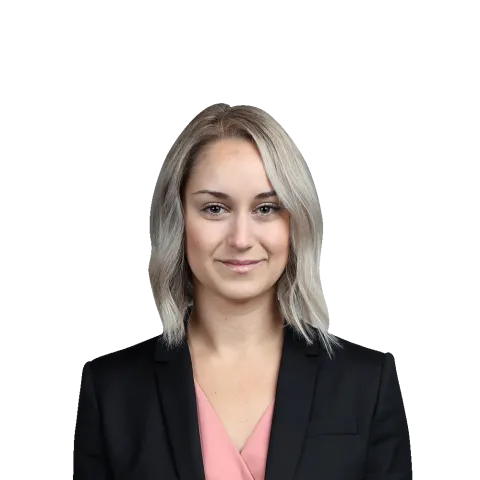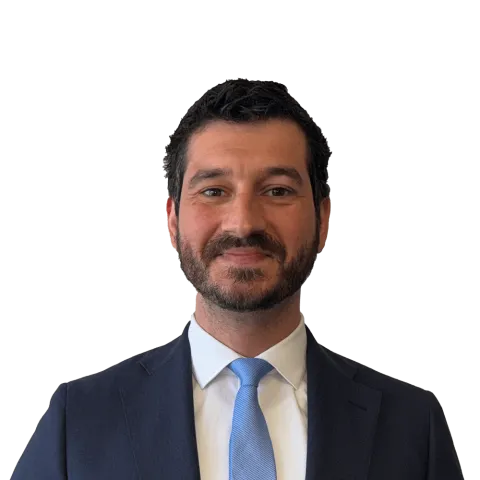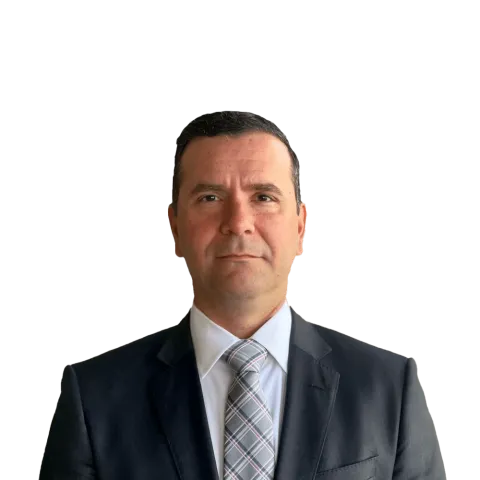Results may vary depending on your particular facts and legal circumstances. The attorney featured above is licensed in Florida. For a full list of attorneys in your state please visit our attorney page.
Results may vary depending on your particular facts and legal circumstances. The attorney featured above is licensed in Florida. For a full list of attorneys in your state please visit our attorney page.
West Tampa Car Wreck Death Attorneys Helping Families Seek Justice
Losing a loved one in a car accident is one of the most devastating experiences a family can endure. Beyond the emotional pain, families are often left with unexpected expenses, lost income, and difficult questions about how such a tragedy could have been prevented.
However, when a fatal crash is caused by another driver’s negligence, reckless behavior, or defective vehicle parts, surviving family members have the right to seek justice.
If your loved one was killed in a car wreck in the West Tampa area, a compassionate and experienced wrongful death attorney can help you hold the responsible parties accountable. The skilled West Tampa car wreck death attorneys at Morgan & Morgan can guide you through the legal process, fight for fair compensation, and help bring a sense of closure to your family.
Schedule a free, no-obligation case evaluation today by completing the contact form on our website. Let the wrongful death lawyers at Morgan & Morgan stand by your side and fight for the justice your loved one deserves.
150,000+ Five Star Reviews
The reasons why clients trust Morgan & Morgan.
Results may vary depending on your particular facts and legal circumstances. Based on select nationwide reviews.
Our Results
How It Works
Unsure what to do next? With 35 years of experience, our personal
injury lawyers will guide you every step of the way.
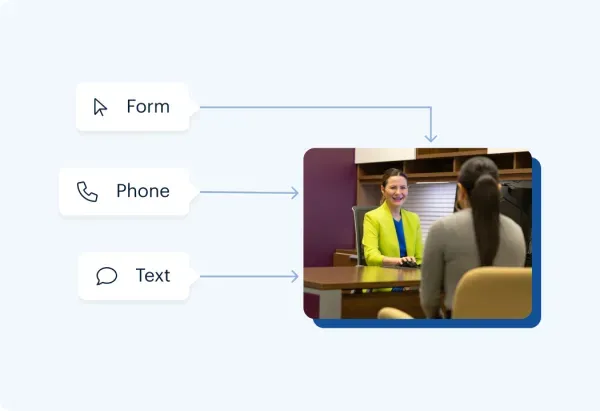
Contact Us 24/7 - It’s Free
Start your claim
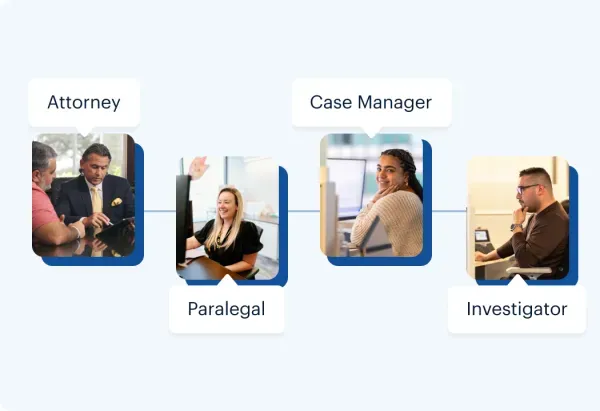
Meet your dedicated attorney
Meet the attorneys
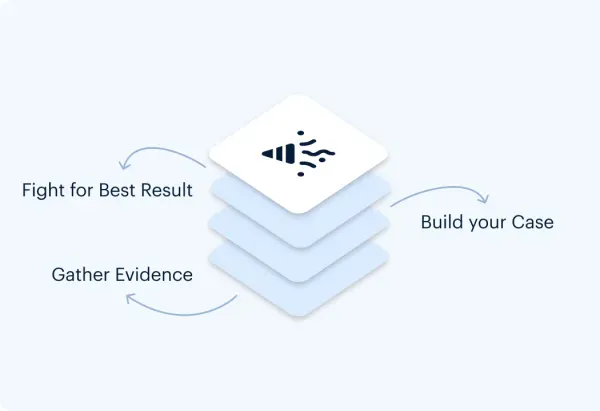
We fight for more
Learn more about the case process
Results may vary depending on your particular facts and legal circumstances. The attorneys shown in these photos may not be licensed in your state. To find an attorney licensed in your area, please visit our attorney page.
Local Care
Backed by America’s Largest Injury Law Firm.
$30 Billion
Recovered for clients
nationwide700,000+
Clients and families
served1,000+
Attorneys across
the country1
Click may change your life
The attorney featured above is licensed in Florida. For a full list of attorneys in your state please visit our attorney page.
Results may vary depending on your particular facts and legal circumstances.
Learn More
Injured and not sure what to do next?
We'll guide you through everything you need to know.
How Does a Morgan and Morgan Attorney Prove Negligence?
At the heart of every personal injury lawsuit, including cases involving wrongful death, is the requirement to prove the four elements of negligence.
Duty of Care
The duty of care doctrine establishes a legal responsibility for one party to protect the health of another party. For example, a healthcare provider has a duty of care to protect the health of a patient. In auto collision cases, the operators of motor vehicles assume a duty of care every time they get behind the wheel of an automobile. Establishing duty of care for a car accident case is relatively easy to do.
Violating Duty of Care
The second element of proving negligence typically is the most difficult element to prove. Your personal injury attorney must demonstrate the other party committed at least one act that violated the duty of care doctrine. For a fatal car accident, violating the duty of care doctrine can include speeding, distracted driving, and operating a motor vehicle while under the influence of drugs and/or alcohol.
Caused Injuries
Your lawyer must show the defendant’s negligence actions caused physical harm, which for a wrongful death lawsuit, requires linking a violation of the duty of care doctrine with the death of one of the occupants of a vehicle involved in the crash. Properly dated medical records represent a critical piece of evidence to prove the presence of the third element of negligence.
Injuries Caused Financial Losses
The injuries sustained because of a car accident must generate financial losses for a wrongful death case to meet the standards of proving negligence. Copies of bank statements present compelling evidence and for a wrongful death case, a death certificate and documents that verify burial and funeral arrangements help establish the presence of financial losses.
Does Florida Follow the Comparative Negligence Principle?
Assigning fault for a fatal car accident is not as straightforward as placing blame for the crash 100 percent on one party, especially if there are more than two vehicles involved in the collision. Most states follow some form of comparative negligence, which assigns a percentage of blame to multiple parties depending on the degree of negligence committed by each party. Florida operates on the standard comparative negligence model, which means each party involved can assume a part of the blame for causing an auto accident.
For example, let’s assume one driver blew past a red light to cross an intersection, which caused a side impact vehicle collision. The driver who got hit appears to have a slam-dunk case of 100 percent negligence placed on the reckless driver who ran the red light. However, the second driver could have averted the crash if the driver had paid more attention to operating the motor vehicle. The judge hearing a civil lawsuit determines the driver who blew past the red light should assume 80 percent of the liability for causing the accident. For a financial award valued at $50,000, the plaintiff receives $40,000 because of the 20 percent deduction for assuming partial liability.
What Is the Statute of Limitations for Filing a Wrongful Death Lawsuit in Florida?
Although a wrongful death case is a part of personal injury law, the statute of limitations for filing a civil lawsuit for a wrongful death case differs from the deadline established for every other type of personal injury law. In Florida, plaintiffs have four years from the date of an accident to file a personal injury lawsuit that seeks monetary damages. However, the state gives plaintiffs just two years to initiate a wrongful death lawsuit.
Two years still is plenty of time to take legal action for a wrongful death case. Instead of cutting it close to the deadline, you should act with a sense of urgency for three reasons. First, you receive compensation faster if you file a wrongful death lawsuit as quickly as possible after a car wreck. Second, your attorney wants to interview witnesses as close as possible to the date of the tragic event. Third, you want to avoid having to deal with bankruptcy in case the defendant takes that route to avoid acute financial distress.
What Should I Do After a Car Accident?
The Florida Department of Highway Safety and Motor Vehicles receives around 400,000 reports of car accidents each year in the Sunshine State. In 2020, Florida reported 3,332 fatalities and 15,614 incapacitating injuries that resulted from vehicle collisions. Knowing how to respond after a car accident, particularly one that involves a fatality, helps you build a strong enough case to file a personal injury lawsuit that seeks monetary damages.
Contact Law Enforcement
Most car accidents require the presence of the nearest law enforcement agency to conduct a comprehensive investigation, ensure the accident scene remains safe, and notify emergency medical personnel to respond to the accident scene. After the law enforcement officers that responded to the accident scene complete their investigation, the lead investigator submits the official police report.
Florida law requires the reporting of an auto collision if the crash caused death and injuries or if the accident resulted in property damage that appears to be valued at more than $500.
Obtain the Contact Information of Witnesses
After a car accident, obtaining the contact information of witnesses can provide legal support for the physical evidence collected at the accident scene. You should not interview witnesses to avoid interjecting your opinion about what transpired before, during, and after the vehicle collision. Write down the name, home address, and phone number of each witness to hand over to your personal injury lawyer during the free case evaluation.
You also should collect insurance information, as well as the license plate number of each vehicle involved in the car crash.
Take Photographs
Although law enforcement submits an official accident report, you should take photos to provide your personal injury attorney with a glimpse of the physical evidence. Photos of property damage and shots of the injuries you sustained help your legal counsel start calculating a reasonable value for monetary damages. Take photographs of the accident scene, with a focus on capturing any tire marks and the condition of the road at the time of the vehicle collision.
Contact a Florida Personal Injury Attorney
Up until now, everything you have done has revolved around the accident scene. When you return home after a motor vehicle crash, contact one of the experienced personal injury lawyers at Morgan and Morgan to schedule a free case evaluation. Our law firm assigns you a litigator who specializes in handling wrongful death cases. Working with a highly-rated personal injury lawyer from Morgan and Morgan ensures you collect compelling physical evidence, as well as have an advocate when the time comes to file an insurance claim and a civil lawsuit that seeks monetary damages.
File an Insurance Claim
You should wait until you consult with a Morgan and Morgan lawyer before you file an insurance claim. An insurance adjuster might try to pressure you into agreeing to a settlement that is well below the compensation that you deserve. Acting as your intermediary, your Morgan and Morgan personal injury lawyer submits a fair value for a claim that starts the process of receiving compensation.
File a Civil Lawsuit
You cannot place a monetary value on the loss of a loved one or going through an ordeal such as witnessing the death of a driver or a passenger of a motor vehicle. However, filing a civil lawsuit allows you to request compensation to cover the financial losses generated by costly medical bills, as well as lost wages and property damage. For a wrongful death lawsuit, requesting punitive damages represents potentially the most substantial value of any other type of financial award.
When you hire a lawyer to handle a wrongful death case, you want to work with a litigator who brings a proven record of success to the table. Schedule a free case evaluation with a Morgan and Morgan wrongful death attorney to get the compensation that you deserve.




